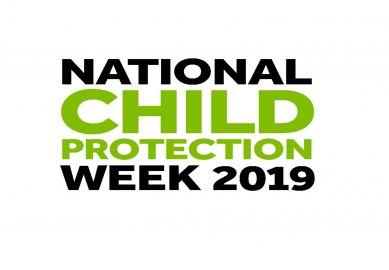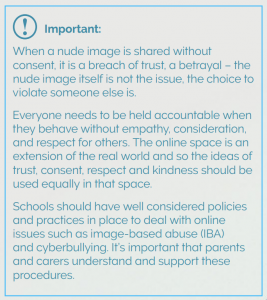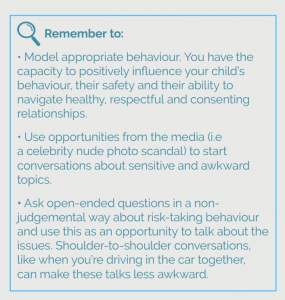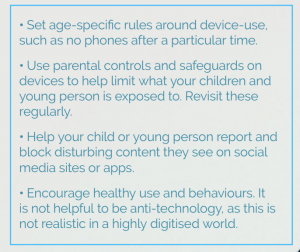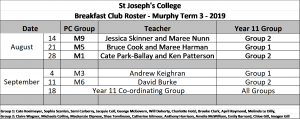Dear Parents and Caregivers,
THE POWERFUL IMPACT OF MIDDLE LEADERSHIP ON STUDENT LEARNING
St Joseph’s College is a complex organisation that aspires to be an authentic learning and faith sharing community, centered in Christ. Staff appointed to middle leadership positions within the College (i.e. Head of Departments, Head of House etc) undertake critical roles that sit at the heart of this drive. It is the only role in the College that requires a blend of classroom teaching, leading, managing and learning. They are close to the day to day action and drive consistent teacher quality in their individual and collective areas of responsibility through curriculum leadership, data analysis to identify pupil under-performance, lesson observations, accountability and the professional mentoring development of their staff.
Often the very important work undertaken by our Middle Leaders within the College is not always obvious to the casual observer. As such, I wish to express our appreciation to those who undertake these important roles and to acknowledge their professionalism and commitment to ensuring the very best outcomes for our students. Our College is truly blessed to have such a wonderful blend of talented and experienced middle leaders who are increasingly playing a crucial role in developing and maintaining the nature and quality of pupils learning experiences.
Over the years I have engaged in conversations with parents and carers whose children sign up for activities – sports, dance, clubs, choirs, music lessons – and then quit when it gets too hard or they say they are sick of it. Adults know how they had to persevere in life, they are naturally worried that their child may become a ‘quitter’. Recently, I came across a book by William Stixrud and Ned Johnson entitled: “The Self-Driven Child: The Science and Sense of Giving Your Kids More Control over their Lives” that explores these concerns.
The book includes practical and easy to understand depictions to explain what is happening to children when they are put under what the authors refer to as “chronic toxic stress created by the pressures of social media management, increasingly pervading competitiveness and unreasonable expectations being placed upon them.” They argue for parenting that should be supportive, but not over controlling, acting sometimes as a consultant to help their children understand the benefits of positive and neutral stress and providing the tools for young people “to learn resilience, self-control and personal motivation in the face of toxic stress” so that they fulfill a commitment despite it losing some of its initial attractiveness and appeal. The following is a brief summary of their findings.
Don’t think of your child’s character as fixed. Most of our worries about our children are about the future. We see the 9-year-old who quits as an aimless 20-year-old. But who they are now is not who they will always be.
Explain the difference between “I don’t want to” and “I don’t feel like it”. Distinguishing long-term desires from immediate feelings will help children understand the difference between an immediate task and ultimate goal. This is a lesson that doesn’t register right away, but it’s worth planting the seed and emphasising over time.
Let them know you see the areas in which they do work hard and show motivation. Say “I know you’re someone who can stick with things when they are important to you”.
Keep exploring. It may take a while to find what really motivates and enthuses them.
The world is so complex that we have no idea where the things that will turn our children on come from. If we encourage children to keep seeking what they love, and to work hard at it when they find it, that will help them grow into confident and self-directed young adults.
This week’s reflection:
Yesterday is gone.
Tomorrow has not yet come.
We have only today.
Let us begin.
St Teresa of Calcutta



